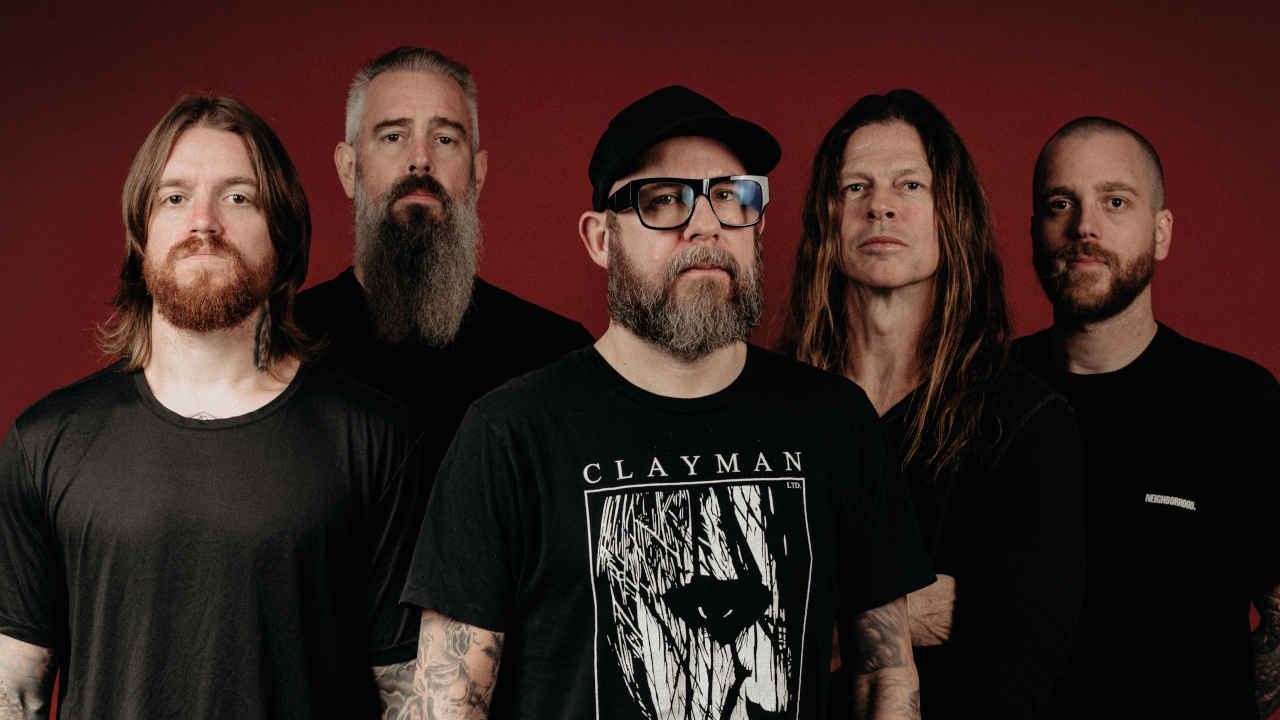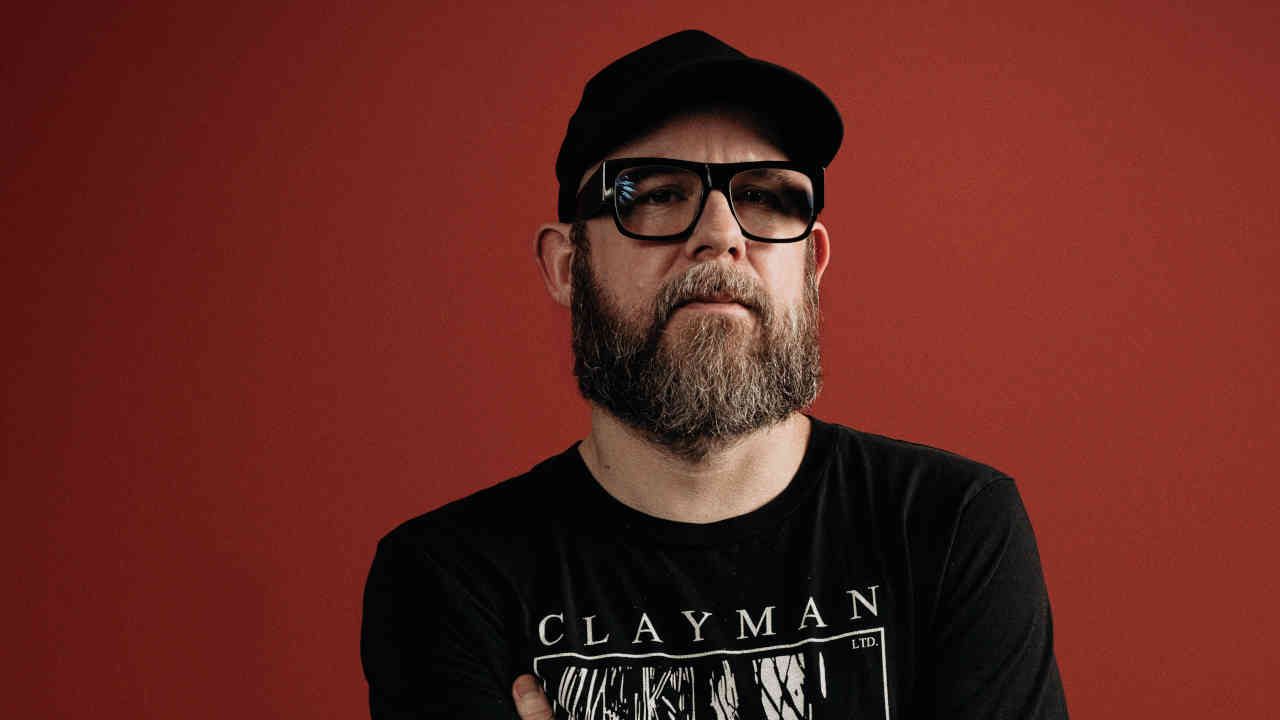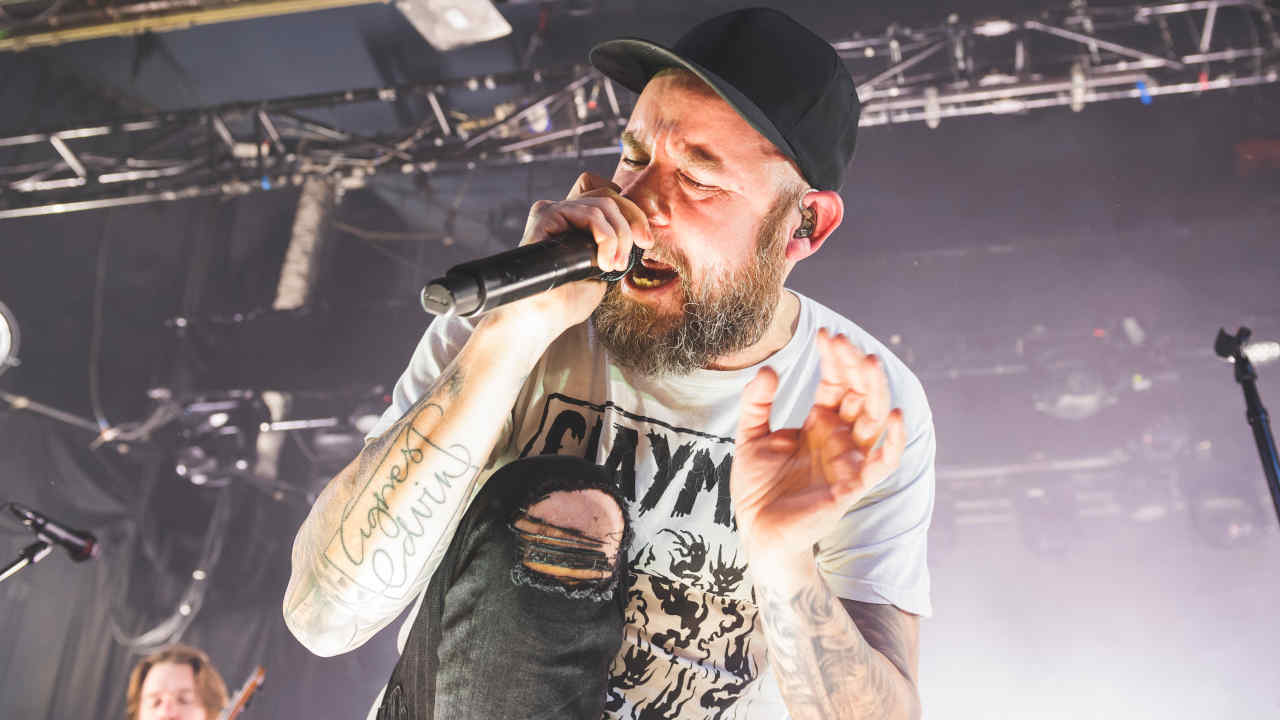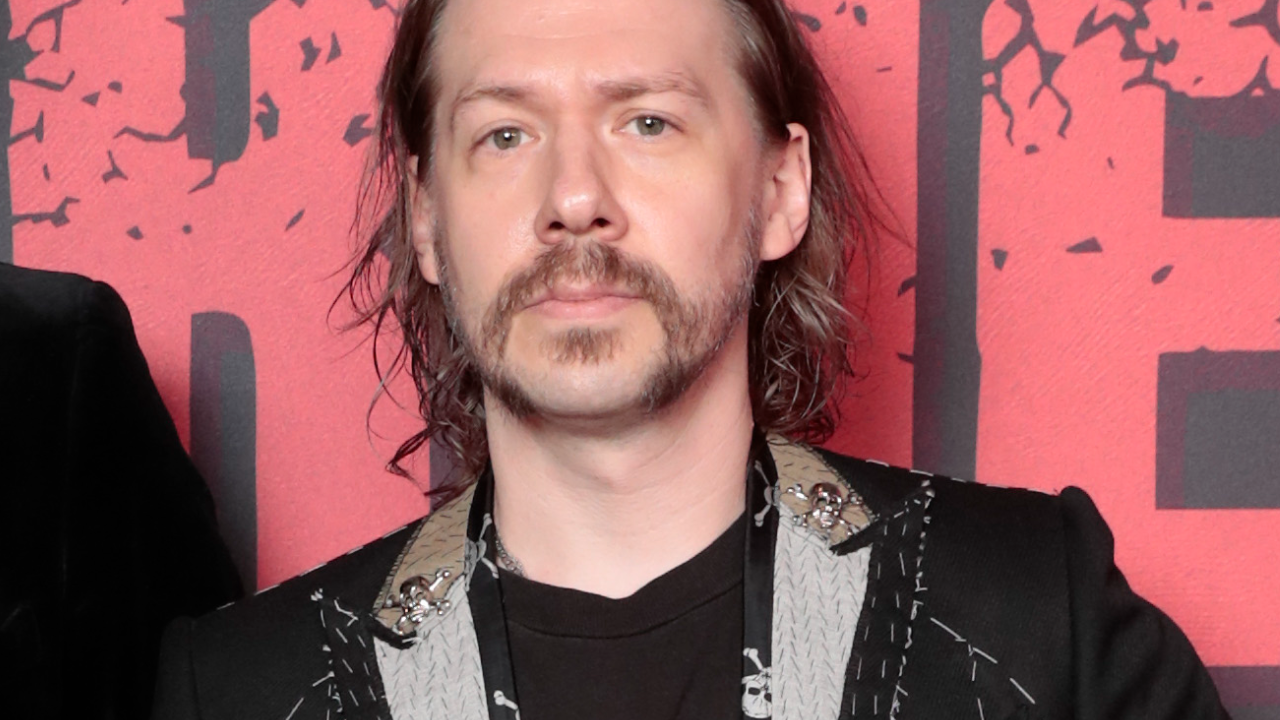“In 10 years time, this album will be a classic”: how In Flames fell in love with melodeath again
In Flames have delivered their most exciting album in years with Foregone. Singer Anders Fridén explainsd they came back to the sound that made them famous

Select the newsletters you’d like to receive. Then, add your email to sign up.
You are now subscribed
Your newsletter sign-up was successful
Want to add more newsletters?

Every Friday
Louder
Louder’s weekly newsletter is jam-packed with the team’s personal highlights from the last seven days, including features, breaking news, reviews and tons of juicy exclusives from the world of alternative music.

Every Friday
Classic Rock
The Classic Rock newsletter is an essential read for the discerning rock fan. Every week we bring you the news, reviews and the very best features and interviews from our extensive archive. Written by rock fans for rock fans.

Every Friday
Metal Hammer
For the last four decades Metal Hammer has been the world’s greatest metal magazine. Created by metalheads for metalheads, ‘Hammer takes you behind the scenes, closer to the action, and nearer to the bands that you love the most.

Every Friday
Prog
The Prog newsletter brings you the very best of Prog Magazine and our website, every Friday. We'll deliver you the very latest news from the Prog universe, informative features and archive material from Prog’s impressive vault.
“This is the In Flames we love!” “This song feels like they’re waving to their older fans saying, ‘We haven’t forgotten about you.’” “After a dozen long years I can finally pick up a new In Flames album.”
These, plus thousands more comments of relief and adulation, await when you look up In Flames’ blistering State Of Slow Decay on YouTube. The lead single from the Gothenburg five-piece’s 14th album, Foregone, was the first wholly melodeath music they’d released in 22 years. It also marked the ceasefire in the war between the band and their oldest fans, who for the same span of time had craved completely different things.
In the early 2000s, In Flames ditched the growls and guitar harmonies of the genre they’d helped define, replacing them with nu metal melodies and electronics. And they’ve been steadfast in their refusal to cave in to pressure and turn back. However, when Hammer sits down with frontman Anders Fridén and guitarist Björn Gelotte in the lobby of their rather fancy London hotel, something unprecedented happens: the singer admits the band’s latest material has been lacking.
“I feel that some of our mixes have been too laidback,” Anders reflects, talking with a stern honesty he maintains throughout our conversation. “We didn’t realise it back then. When we had this break during the pandemic, me and Björn talked about what we wanted to do. The first thing we both said – and the first thing that Howard [Benson, In Flames’ producer] said to us – is that we should bring the guitar and drums back to the forefront. We want to make In Flames more ‘metal’, whatever that means, production-wise. We had a lot of great songs on the last few albums, but they could have had a bit more punch and attitude.”
Purists will doubtlessly roll their eyes at anything less than In Flames totally disowning their post-melodeath era. However, Foregone does much more than simply add “punch and attitude” to the band’s production. It gives their songwriting an overdue boot up the arse as well. Composed of both the savagery that defined their earliest years and the arena-ready hooks they’ve specialised in since, Foregone is In Flames’ best album in at least two decades. Every member of the band has their abilities tested from the off, as State… plummets from pounding chords to a flurry of high-speed drumming and intricate fretwork. Then Anders’ roars cut in, before the single’s latter half flaunts his clean singing with a fist-pumping chorus.

And that’s just the first song. Meet Your Maker continues apace with its thrash metal opening, pairing open-string chugs with double-kick percussion, while The Great Deceiver ignites flashbacks to classics such as The Jester Race with its harmonic guitar leads. Even when Bleeding Out and Pure Light Of Mind lean nearer to modern In Flames with their electronic undercurrents, Howard’s production emphasises the drums to keep the grit under Foregone’s fingernails.
“We haven’t just looked back and made ‘The Jester Race Part 2’, because that would be stupid,” Anders explains. “It wouldn’t be true to that album and we’re not the same people as we were back then. So, we’re keeping all of those roots with us but still looking forward to the future.”
Sign up below to get the latest from Metal Hammer, plus exclusive special offers, direct to your inbox!
The question is: why now? In Flames began to fob melodeath off as far back as 2000, when they started emphasising keyboards and grooving percussion on Clayman. Since then, further forays from their signature sound have turned acclaim into backlash, with the reviews mixed at best. Hammer wrote that 2014’s Siren Charms was “happy to knock out the same mid-paced riffs and safe verse-chorus structures that could be airlifted from any In Flames album since Reroute To Remain”, while last album I, The Mask was described as “a cynical attempt to appease radio-pluggers”.
But then the pandemic happened. By the time the world went into lockdown in March 2020, In Flames had been touring I, The Mask for more than a year – and finally felt stable. Between that album and its predecessor, Battles, the entire rhythm section had shifted. Bryce Paul replaced bassist Peter Iwers at the suggestion of his chum, In Flames drummer Joe Rickard – then Joe left citing back problems and had ex-Chiodos member Tanner Wayne fill his shoes. After that, ex-Megadeth guitarist Chris Broderick joined the band in place of Niclas Engelin just two days before the I, The Mask shows started in America.
Björn – as equally no-nonsense as his bandmate – remembers, “Niclas sent us a text saying that he just couldn’t do it, basically from his hospital bed. He either burnt out or hit a wall somewhere.” Why was he in the hospital? “You’d have to ask him.” (Hammer approached Niclas for a comment but he did not respond.)
He continues, “The day or two leading up to the tour, we got quite a lot of submissions from guitarists that were available. As soon as Chris’s name popped up, we were like, ‘He’s one of the best guitar players we know, and we’ve known him for 20 years.’ When we toured with Jag Panzer [in 2002], he was the guy who was playing guitar all day, working out, running up and down the stairs – not a partier and super-focused on music. He had to learn 25 songs in a day, but to him it was a fun challenge.”
Although Chris didn’t contribute more than a handful of solos to Foregone, he still played a pivotal part during his rookie year. “Watching his playing has changed the way I live,” says Björn, before laughing: “I practise way more now; Anders is probably super-annoyed about it. It’s never been more fun to be in this band.”
When the pandemic struck, In Flames were in New Zealand. Their shows there were cancelled, forcing them home without playing a second of music. Björn felt the frustration immediately. “For me, being onstage has always been the highlight,” he explains. “We had the next year and a half already lined up, then the pandemic came.”
For Anders, it bubbled up more gradually. “For three weeks I was walking around in my pyjamas,” he laughs. “I felt really calm. But in Sweden, we didn’t have the full lockdown. Then, when things started reopening, we got Omicron. It was like being shown the best dinner you could ever have, then having it taken away before you can eat it.”
With the duo leading In Flames’ songwriting charge (as has been the way since founder and co-composer Jesper Strömblad left the band in 2010), that agitation manifests on Foregone. Not only is the music louder, faster and nastier than anything In Flames have released in decades, the lyrics lament how fucked we all are. State Of Slow Decay rages over ever-widening political divides driven by social media algorithms. ‘I hear forgive and forget, but I see there’s no way,’ Anders sings.
Meanwhile, the words to The Great Deceiver were written at the start of Russia’s invasion of Ukraine. Anders asks, as he puts it, “What the fuck are we doing to ourselves?” with lines such as ‘Times are changing for the worse! We are doomed, we are cursed!’ The chorus – ‘Bend the truth to fit your opinion…’ – also swipes at misinformation.
Despite the speculation of many a pundit, Anders and Björn insist their newfound aggression has nothing to do with The Halo Effect showing up and stealing headlines. The freshly formed quintet are a collective of ex-In Flames members, including Niclas Engelin and Dark Tranquillity singer Mikael Stanne, who have returned to the 90s’ Gothenburg melodeath sound. In the process, they beat their old bandmates to the punch by just a year.
“I’ve never listened to them,” Anders states, uncharacteristically briefly.
Björn has. “The one song I have heard, I thought it was Dark Tranquillity,” he says. “It sounded, production-wise, awesome and obviously had Mikael on there.”
“It really came as a surprise,” Anders adds, “but it’s fine. They can do whatever they want. It doesn’t affect our music. People ask us, ‘Is there competition?’, but this isn’t the Eurovision Song Contest.”

As apathetic as the singer claims to be, he also says he can’t imagine touring with them any time soon: “Never say never, but I don’t see it right now. We’d have to be talking first.”
Even though they were second out of the gate, In Flames returning to their roots has finally put the band and their OG fans back on the same page. If the deluge of loving comments that’s followed each of Foregone’s singles didn’t telegraph that enough, then their Brixton Academy concert (see p.98) hours after our conversation does. Before the band bust out State…, Anders vows to his onlookers that the band will “never take you for granted again” – something he also said during the band’s recent US tour. And, between songs that span from 1994 debut Lunar Strain through to the forthcoming Foregone, he frequently stands still, in awe of such a rabid audience. Björn is all smiles, the pit rages so hard that it’s rumoured someone’s broken their shoulder, and the night crescendos with a venue-wide singalong to Take This Life.
“I think, in 10 years’ time, Foregone will be an In Flames classic,” Anders concludes at the end of our chat. And, while Björn can’t predict what In Flames will do next, he knows this album and this line-up have set the stage for a boundless future.
“The members that we have now, their skillset is not at all limiting,” he says. “Now we can do crazy stuff with people that really love to show off. It makes me very much look forward to what’s to come.”
Foregone is out now via Nuclear Blast

Louder’s resident Gojira obsessive was still at uni when he joined the team in 2017. Since then, Matt’s become a regular in Metal Hammer and Prog, at his happiest when interviewing the most forward-thinking artists heavy music can muster. He’s got bylines in The Guardian, The Telegraph, The Independent, NME and many others, too. When he’s not writing, you’ll probably find him skydiving, scuba diving or coasteering.
